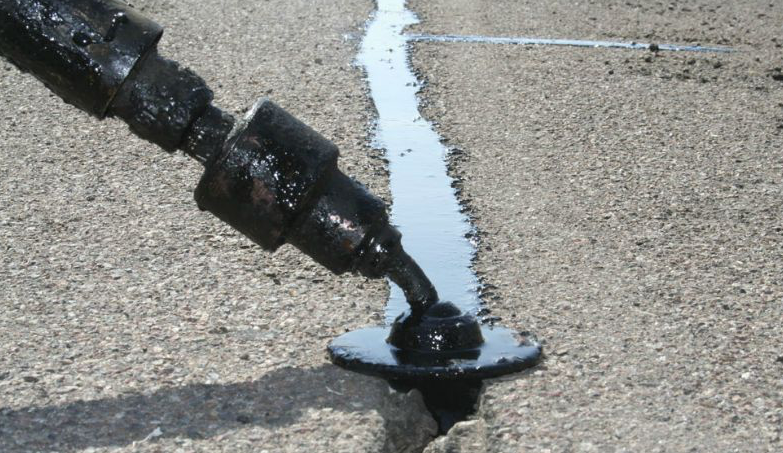Elevate Sidewalk Performance: Cold Mix Asphalt Sealing Tactics
Elevate Sidewalk Performance: Cold Mix Asphalt Sealing Tactics
Blog Article
Cold Mix Asphalt Vs. Hot Mix Asphalt: Which Is Right for You?

Make-up Distinctions
Cold mix and warm mix asphalts differ significantly in their composition, with distinct qualities that affect their performance and applications. Cold mix asphalt is produced by emulsifying the asphalt binder with water and an emulsifying agent prior to mixing it with aggregate. This approach permits for the asphalt to be workable at lower temperatures, making it excellent for momentary repairs and for usage in colder climate conditions. Warm mix asphalt, on the other hand, is manufactured at high temperatures, normally between 300-350 ° F, which helps to attain much better compaction and a more sturdy last product. The hot mix asphalt production procedure entails heating up the accumulation and asphalt binder independently before incorporating them at the asphalt plant.
In addition, cool mix asphalt tends to be much less thick and much more adaptable than warm mix asphalt. This adaptability makes it far better matched for locations with higher degrees of activity, such as driveways or roads with rush hour. On the other hand, warm mix asphalt is recognized for its high longevity and resistance to rutting and cracking, making it a favored choice for highways and high-traffic roadways where longevity is crucial.
Installation Process Variations
The procedure of installing chilly mix and hot mix asphalt displays notable variances in their procedures and requirements. In contrast, warm mix asphalt necessitates a more fancy setup procedure. Due to the home heating demands, hot mix asphalt installments are usually carried out by specialists with specialized tools, making certain an extra structurally sound and long-term outcome.
Toughness and Durability Elements
When considering asphalt alternatives, sturdiness and longevity are crucial variables to examine for long lasting pavement performance. Warm mix asphalt (HMA) is recognized for its remarkable sturdiness and durability.
In terms of longevity, HMA usually outperforms CMA because of its premium strength and resistance properties. HMA pavements have a longer life span, needing less regular repairs and upkeep, which can translate to set you back savings over time. In addition, HMA pavements are more conveniently customizable to fulfill details project needs, better improving their toughness.
Cost Factors To Consider
Thinking about the economic effects is an important element when examining the selection in between try here hot mix asphalt (HMA) and cold mix asphalt (CMA) for pavement tasks. While the first expense of warm mix asphalt is commonly greater than that of cold mix asphalt, HMA commonly offers a more cost-efficient solution in the lengthy run due to its remarkable sturdiness and longevity.
In enhancement to product prices, it's vital to consider the expenditures connected with setup and upkeep when contrasting HMA and CMA. HMA typically needs specialized tools and skilled labor for correct setup, which can impact total task expenses. Conversely, CMA is much easier to collaborate with and can frequently be used using simpler methods, possibly lowering installation costs. Eventually, the decision between HMA and CMA should take into account not just the preliminary expense but also the lasting financial effects to identify the most cost-efficient option for the specific pavement job.
Environmental Effect Contrast
Contrast of the ecological impacts in between warm mix asphalt (HMA) and cool mix asphalt (CMA) reveals distinctive distinctions in sustainability methods. HMA production requires high temperature levels, leading to increased power intake and greenhouse gas exhausts.
Additionally, the usage of CMA usually entails reusing existing asphalt sidewalk, advertising resource conservation and reducing the quantity of waste sent to land fills. This recycling aspect better improves the sustainability of CMA contrasted to HMA. On the whole, when considering the ecological impact, CMA arises as a more ecologically sustainable option due to its lower power needs, lowered exhausts, and the potential for reusing existing products. By click site opting for CMA over HMA, road building and construction tasks can contribute favorably to ecological conservation efforts.
Verdict
Finally, the option between chilly mix asphalt (CMA) and hot mix asphalt (HMA) depends upon various variables such as structure, installation procedure, longevity, durability, expense, and ecological effect. cold mix asphalt. While CMA uses a fast and cost-efficient solution for small repairs, HMA makes sure premium sturdiness and durability for rush hour areas. Consider these aspects very carefully to identify which sort of asphalt is the right selection for your paving needs

Considering the monetary implications is a crucial aspect when examining the option in between hot mix asphalt (HMA) and cool mix asphalt (CMA) for pavement projects. While the preliminary cost of warm mix asphalt is commonly greater than that of websites cool mix asphalt, HMA frequently provides a much more affordable solution in the lengthy run due to its premium resilience and longevity. asphalt patch repair.Contrast of the ecological effects in between hot mix asphalt (HMA) and chilly mix asphalt (CMA) exposes distinctive distinctions in sustainability practices.In conclusion, the selection in between cold mix asphalt (CMA) and warm mix asphalt (HMA) depends on different aspects such as composition, setup process, toughness, longevity, price, and environmental influence
Report this page